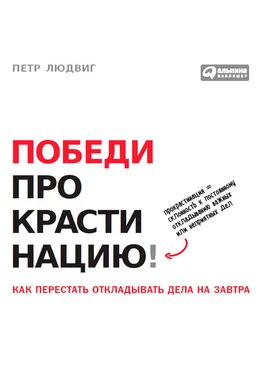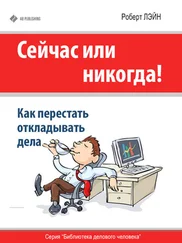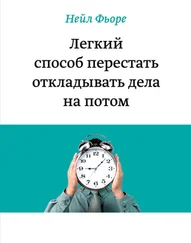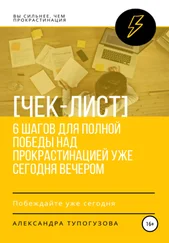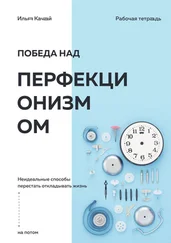12. Ashby, F.G., Isen, A.M., Turken, A.U . A neuropsychological theory of positive affect and its influence on cognition // Prychological Review. 1999. Vol. 106. № 3.
13. Banyas, C.A. Evolution and phylogenetic history of the frontal lobes // Miller, B.L., Cummings, J.L . The human frontal lobes: functions and disorders. New York: Guilford Press, 1999, s. 83–106.
14. Baumeister, R.F . Ego Depletion and Self-Regulation Failure: A Resource Model of Self-Control // Alcoholism: Clinical. 2003. Vol. 27. № 2. P. 281–284.
15. Baumeister, R.F . Handbook of self-regulation: research, theory, and applications. New York: Guilford Press, 2007.
16. Baumeister, R.F., Bratslavsky, E., Muraven, M., Tice, D.M . Ego depletion: Is the active self a limited resource? // Journal of Personality and Social Psychology. 1998. Vol. 74. № 5. P. 1252–1265.
17. Baumeister, R.F., Muraven, M., Tice, D.M . Ego depletion: A resource model of volition, self-regulation, and controlled processing // Social Cognition. 2000. Vol. 18. № 2. P. 130–150.
18. Baumeister, R.F., Tierney, J . Willpower Rediscovering the Greatest Human Strength. London: Penguin Books, 2012.
19. Baumeister, R.F . Choking under pressure: Self-consciousness and paradoxical effects of incentives on skillful performance // Journal of Personality and Social Psychology. 1984. Vol. 46. № 3. P. 610–620.
20. BBC. 1978: Mass suicide leaves 900 dead // BBC.com [online]. URL: http://news.bbc.co.uk/onthisday/hi/dates/stories/november/18/newsid_2540000/2540209.stm
21. Berridge, K.C., Kringelbach, M.L . Affective neuroscience of pleasure: reward in humans and animals // Psychopharmacology. 2008. № 3. P. 457–480.
22. Bower, G.H . Mood and memory // American Psychologist. 1981. Vol. 36. № 2. P. 129–148.
23. Brickman, P., Coates, D., Janoff-Bulman, R . Lottery winners and accident victims: is happiness relative? // Journal of personality and social psychology. 1978. Vol. 36. № 8. P. 917–927.
24. Brocas, I., Carrillo, J.D . The psychology of economic decisions. 2nd ed. New York: Oxford University Press, 2003–2004.
25. Brown, M . Comfort Zone: Model or metaphor? // Australian Journal of Outdoor Education. 2008. Vol. 12. № 1. P. 3–12.
26. Brugger, P., Landis, T., Regard, M. A «sheep-goat effect» in repetition avoidance: Extra-sensory perception as an effect of subjective probability? // British Journal of Psychology. 1990. Vol. 81. № 4. P. 455–468.
27. Christakis, N.A., Fowler, J.H . Connected: the surprising power of our social networks and how they shape our lives: how your friends‘ friends‘ friends affect everything you feel, think, and do. New York: Back Bay Books, 2009.
28. Christakis, N.A., Fowler, J.H . Dynamic spread of happiness in a large social network: longitudinal analysis over 20 years in the Framingham Heart Study // British Medical Journal. 2008. № 337.
29. Critchley, M . Modes of reaction to central blindness // Proceedings of the Australian Association of Neurologists. 1968. Vol. 5. № 2. P. 211.
30. Csíkszentmihályi, M . Beyond boredom and anxiety. San Francisco: Jossey-Bass Publishers, 1975.
31. Csíkszentmihályi, M . Creativity: flow and the psychology of discovery and invention. New York: HarperCollins Publishers, 1997 a .
32. Csíkszentmihályi, M . Finding flow: the psychology of engagement with everyday life. New York: Basic Books, 1997 b .
33. Csíkszentmihályi, M . Finding flow: the psychology of engagement with everyday life. New York: BasicBooks, 2008 а .
34. Csíkszentmihályi, M . Flow: the psychology of optimal experience. New York: HarperPerennial, 1991.
35. Csíkszentmihályi, M . Flow: the psychology of optimal experience. New York: Harper Perennial, 2008 b .
36. Csíkszentmihályi, M . Optimal experience: psychological studies of flow in consciousness. Cambridge: Cambridge University Press, 1992.
37. Darwin, C . The descent of man: and selection in relation to sex. London: Penguin, 2004.
38. Di Tella, R., Haisken-De New, J., Macculloch, R . Happiness adaptation to income and to status in an individual panel // Journal of Economic Behavior. 2010. Vol. 76. № 3. P. 834–852.
39. Diamandis, P.H., Kotler, S . Abundance: the future is better than you think. New York: Free Press, 2012.
40. Diener, E., Lucas, R.E., Scollon, C.N . Beyond the Hedonic Treadmill: Revising the Adaptation Theory of Well-Being // Diener, E . The science of well-being. New York: Springer Netherlands, 2009. P. 103–118.
41. Du Plessis, E . The branded mind: what neuroscience really tells us about the puzzle of the brain and the brand. Philadelphia: Kogan Page, 2011.
42. Easterlin, R.A . Income and Happiness: Towards a Unified Theory // The Economic Journal. 2001.Vol. 111. № 473. P. 465–484.
43. Fairclough, S.H., Houston, K . A metabolic measure of mental effort // Biological psychology. 2004. Vol. 66. № 2. P. 177–190.
44. Ferrari, J.R . Procrastination as self-regulation failure of performance: Effects of cognitive load, self-awareness, and time limits on «working best under pressure» // European Journal of Personality. 2001. Vol. 15. № 5. P. 391–406.
45. Frankl, V.E . Man’s search for meaning. Boston: Beacon Press, 2006.
46. Fuoco, M.A . Trial and error: They had larceny in their hearts, but little in their heads // Pittsburgh Post-Gazette. 1996-05-21.
47. Gailliot, M.T., Baumeister, R.F., Dewall, C.N., Maner, J.K., Plant, E.A., Tice, D.M., Brewer, L.E., Schmeichel, B.J . Self-control relies on glucose as a limited energy source: Willpower is more than a metaphor // Journal of Personality and Social Psychology. 2007. Vol. 92. № 2. P. 325–336.
48. Gallup. Gallup.com: Daily News, Polls, Public Opinion on Politics, Economy, Wellbeing, and World [online]. 2013. URL: http://www.gallup.com
49. Gilbert, D.T., Ebert, J.E . Decisions and revisions: the affective forecasting of changeable outcomes // Journal of personality and social psychology. 2002. Vol. 82. № 4. P. 503–514.
50. Gilbert, D.T . Stumbling on happiness. New York: A.A. Knopf, 2006.
51. Glucksberg, S . The influence of strength of drive on functional fixedness and perceptual recognition // Journal of Experimental Psychology. 1962. Vol. 63. № 1. P. 36–41.
52. Gneezy, U., Rustichini, A.A . Fine Is a Price The Journal of Legal Studies. 2000. Vol. 29. № 1. P. 1–17.
53. Goklany, I.M . The improving state of the world: why we‘re living longer, healthier, more comfortable lives on a cleaner planet. Washington (DC): Cato Institute, 2007.
54. Grawe, K . Neuropsychotherapy: How the Neurosciences Inform Effective Psychotherapy. New Jersey: Routledge, 2007.
55. Hagger, M.S., Wood, C., Stiff C., Chatzisarantis, N.L.D . Ego depletion and the strength model of self-control: A meta-analysis // Psychological Bulletin. 2010. Vol. 136. № 4. P. 495–525.
56. Haidt, J . The happiness hypothesis: finding modern truth in ancient wisdom. New York: Basic Books, 2006.
57. Halford, G.S., Baker, R., McCredden, J.E., Bain, J.D. How many variables can humans process? // Psychological Science. 2005. Vol. 16. № 1. P. 70–76.
58. Haney, C ., Banks, C., Zimbardo, P. Interpersonal dynamics in a simulated prison // International Journal of Criminology and Penology. 1973 a . № 1. P. 69–97.
Читать дальше
Конец ознакомительного отрывка
Купить книгу
